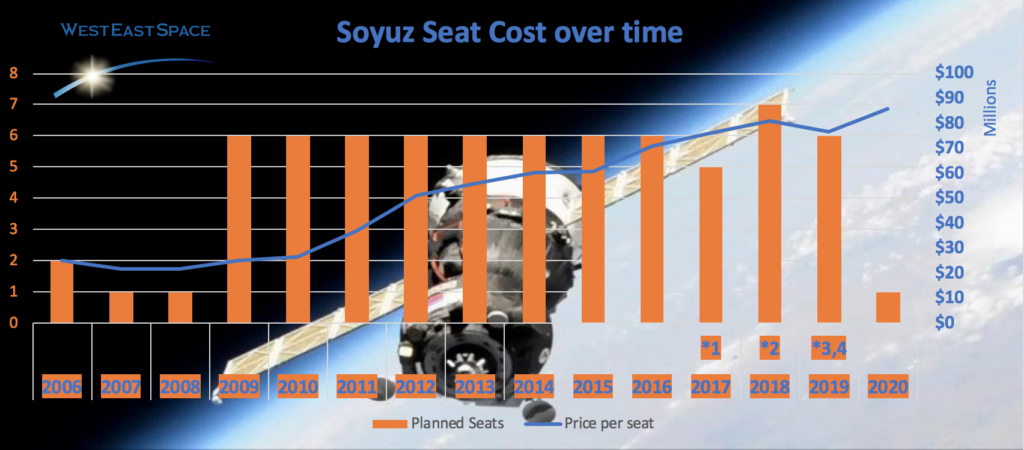By Bill D’Zio
*Notes *1 In February 2017, NASA purchased from Boeing two Soyuz seats and then later three additional seats for $373.5 million or $74.7 million per seat. Boeing had the rights to sell the seats as a result of a settlement with RSC Energia—the Russian company that builds the Soyuz for Roscosmos—due to a failed partnership to develop the capability to launch rockets from an off-shore platform in the ocean.
2 2017 NASA contract for 12 additional seats
3 Due to slippage in the commercial crew schedule, in March 2018 NASA purchased two additional Soyuz seats for $86 million each, one for the September 2019 Soyuz flight and another on the upcoming April 2020 mission.
4 One Soyuz launch failed during launch requiring an abort prior to reaching orbit. Data Source: NASA Office of Inspector General analysis of Soyuz cost data provided by NASA
Soyuz creeping up in cost
NASA has been dependent on Russia for transport to and from the ISS. Over time the cost of seats on the Soyuz crew vehicle have risen.
The Roscosmos’s Soyuz vehicle has been ferrying crew to the International Space Station since November 2000. Originally Soyuz was designed to carry cosmonauts to the Moon, however was repurposed to be the main transport vehicle for Russia over the years. The Soyuz spacecraft is capable of carrying three crewmembers at a time and is certified to remain docked with the ISS for a maximum of 200 days and is launched from the Baikonur Cosmodrome launch site.
Until the NASA Commercial Crew Program (CCP) is completed, Roscosmos remains the sole option for transporting astronauts to and from the ISS. At all times, at least one of the Soyuz spacecraft is docked at the International Space Station serving as an emergency lifeboat or escape pot should evacuation be needed. Typically two Soyuz capsules are docked at the ISS which allows up to six astronauts to remain on the International Space Station. The limit of six astronauts is established by the number of seats available for evacuation.
